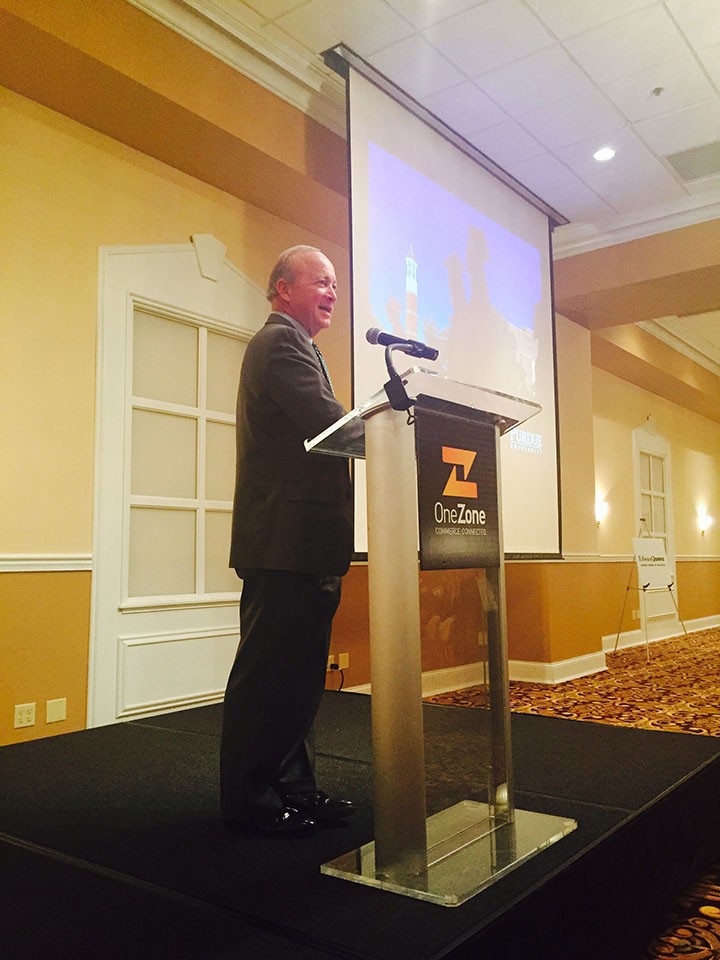
By Adam Aasen
Mitch Daniels, former two-term Indiana governor and now president of Purdue University, spoke to OneZone about higher education at a luncheon at the 502 East Event Centre in Carmel on Oct. 22.
The focus of the speech was on the rising cost of college for students and how Daniels has said he’s made it his mission to provide, “higher education at the highest proven value.”
Daniels said he’s simultaneously trying to tackle two problems facing college graduates: rising debt and scarce job opportunities.

Some people don’t value a college degree like they used to, Daniels noted, citing that 75 percent of people said a college degree was necessary in 2010 and now only 43 percent said it was necessary in 2014.
“I hope that is a sticker shock effect or a temporary phenomenon,” he said. “Our higher education system, even with its enormous problems, is still a major advantage that we don’t want to let go of.”
He cited that 96 percent of college provosts think they are preparing college graduates for the job market, but only 43 percent of the American public and 33 percent of business employers agree.
As a result, you see a growing number of college graduates taking jobs that don’t require degrees.
From 2000 to 2012, the number of waiters with college degrees doubled from 7 percent to 15 percent. The same goes for dishwashers, jumping from 1.5 percent to 3 percent. There was even a 69 percent increase in the number of janitors with college degrees. Far fewer college graduates are becoming entrepreneurs and starting their own businesses.
Because they can’t find a high-paying job and they are saddled with debt, about 45 percent of college graduates are living with family.
“I want to provide an education at Purdue that is so well-suited to today’s economy that your kids don’t move into your basement,” Daniels said.
To tackle this problem, Daniels said when he first took the job he decided to freeze student tuition. He said he made the decision “on instinct” since he hadn’t been on the job long, but he said it’s paid off, saving students $70 million over four years.
“After 36 straight years, I said, ‘Let’s take at least a one year time out,’” he said.
As a result, he said admissions staff thought that by not raising tuition, it would make people think that Purdue didn’t have confidence in their educational product.
“I guess some people buy college like they buy wine, if it’s more expensive it must be better,” he said.
Instead, Daniels said Purdue had record admissions numbers and the tuition freeze helped differentiate the university from a marketing standpoint. He said today the total cost is less than it was three years ago and total student debt has gone down 23 percent. He’s tackled the cost of textbook prices through a partnership with Amazon and now the prices are 29 percent lower than competitors. He said it used to be 40 percent cheaper but some competitors actually lowered their prices in response.
Daniels said he’s responding to the tuition freeze with record-breaking back-to-back years in terms of fundraising. He’s also finding ways to cut costs, including looking a redundancies and places to trim.



